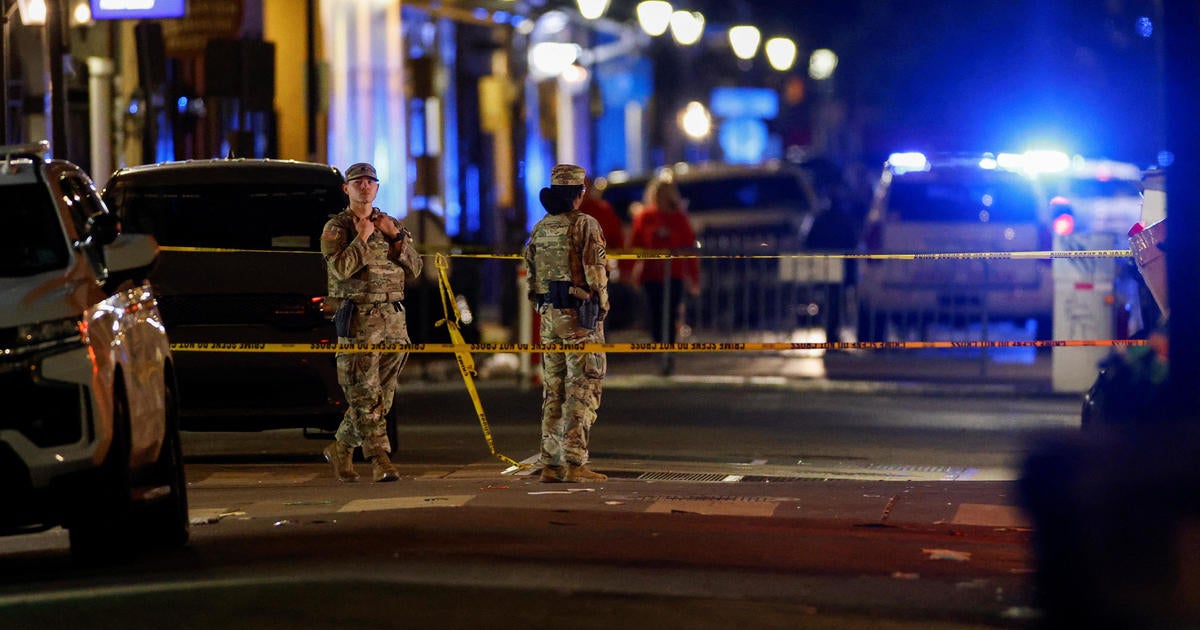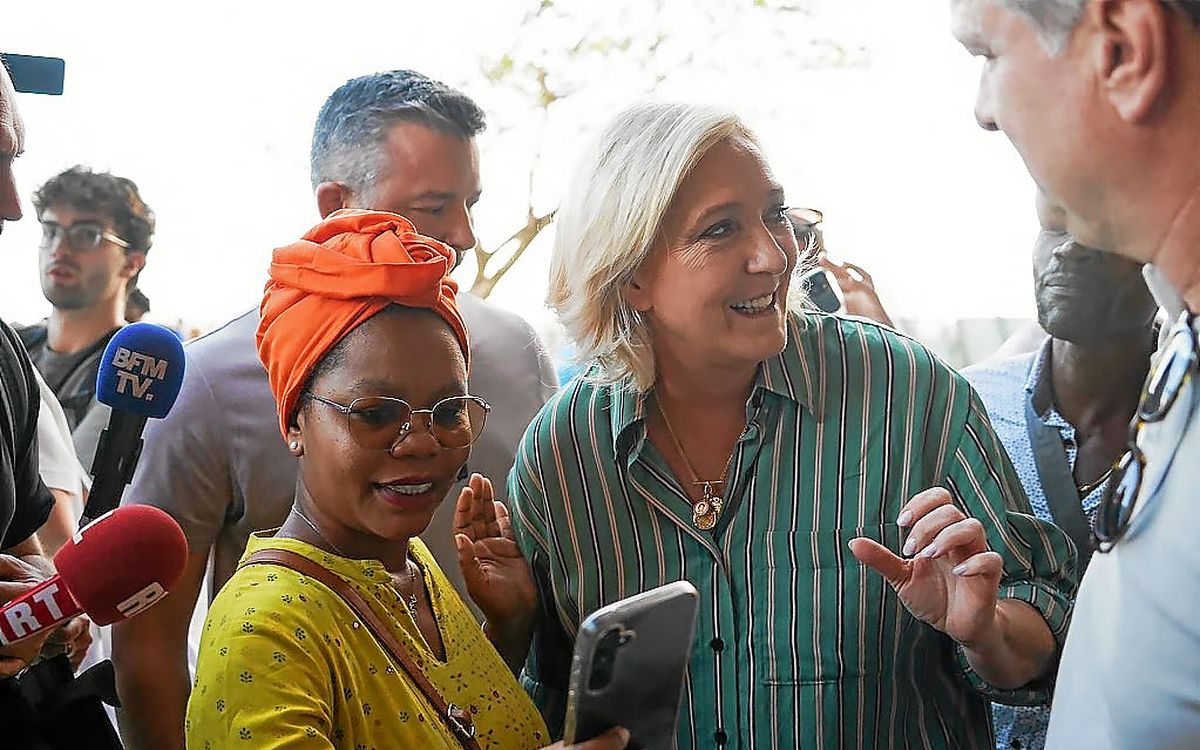Five days after a pickup truck flying the ISIS flag rammed through a crowd celebrating New Year’s Eve in New Orleans, investigators say they are learning more about the background and possible motives of the driver who carried out the deadly attack.
While following leads that have cropped up in several United States cities outside of Louisiana, federal agents are also looking into a series of trips the driver took to New Orleans and Cairo, Egypt, in 2023, said Lyonel Myrthil, the special agent in charge of FBI New Orleans, at a briefing Sunday.
The FBI previously identified the perpetrator as 42-year-old Shamsud-Din Jabbar, a U.S. citizen from Texas. He was fatally shot by police during the rampage on Bourbon Street, in New Orleans’ French Quarter, which left 14 people dead and dozens more injured. Authorities have characterized the attack as an act of terrorism, pointing to social media videos where Jabbar aligned himself with ISIS, and believe he was likely radicalized online.
Federal agents have not found evidence of any accomplices in the attack and reiterated Sunday that it appears Jabbar acted alone. ISIS has not claimed responsibility for the attack and officials with the U.S. Department of Homeland Security said there is no established link to foreign actors, but investigators are examining potential connections between Jabbar’s past travels and what happened last week in the French Quarter.
“Our agents are getting answers as to where he went, who he met with and how those trips may or may not tie into his actions here in our city of New Orleans,” Myrthil told reporters.
The agent said Jabbar traveled to Cairo from June 22 to July 3, 2023, and to Ontario, Canada, from July 10 to July 13 of that year.
Jabbar had visited New Orleans at least twice in the months leading up to the attack, in October and November last year, according to Myrthil. The FBI on Sunday shared video footage that Jabbar recorded using Meta glasses during one of those trips, which showed him riding through the French Quarter on a bicycle.
Myrthil said he was wearing those glasses when he drove into the crowd on Bourbon Street but did not have the recording feature turned on.
Investigators are conducting interviews with hundreds of people who they identified as having knowledge of “key pieces of this complex, evolving case,” Myrthil said. They are pursuing leads in Houston, Texas, where Jabbar lived, as well as Atlanta, Georgia, and Tampa, Florida. Although the FBI believes Jabbar was the sole attacker on New Year’s Eve, the agency said it is continuing to probe for “potential associates” within the U.S. and abroad.
The FBI did not provide details Sunday about who those potential associates could be. But Joshua Jackson, the special agent in charge of the New Orleans field division of the Bureau of Alcohol, Tobacco and Firearms, said the probe did identify a man who sold Jabbar the rifle found in his possession after the attack, in an illegal private sale in Texas.
Domestic and international terrorism threats against the U.S. are “elevated” right now, said Christopher Raia, the deputy assistant director of the FBI’s counterterrorism division, on Sunday. Raia noted that “lone actors, or small cells of individuals who typically radicalize to violence online and who primarily use easily accessible weapons, have posed the greatest terrorism threat to our homeland.”
Rep. Jim Himes, a ranking member of the House Intelligence Committee, echoed Raia’s comments on the difficulty authorities face in dealing with lone actors during an interview on “Face the Nation with Margaret Brennan.”
“The people and assets that we put up against this threat are the best in the world,” said Himes. “It is also true that lone wolf attackers, that is, an individual who’s not communicating with somebody abroad, who’s not sending texts or sending emails, are extraordinarily difficult to detect.”
Himes appeared on “Face the Nation” alongside Rep. Mike Turner, the House Intelligence chairman, who discussed the Bourbon Street attack from a national security standpoint.
“There may have been opportunities or times at which he could have been found and could have been prevented,” said Turner, referencing Jabbar’s prior trips to New Orleans. “We’ll learn what those are, and ways in which he might have been- been found, and maybe we could have intervened. But those will give us greater opportunities at which we’ll look to how we might be able to, in the future, find others.”
Grub5


